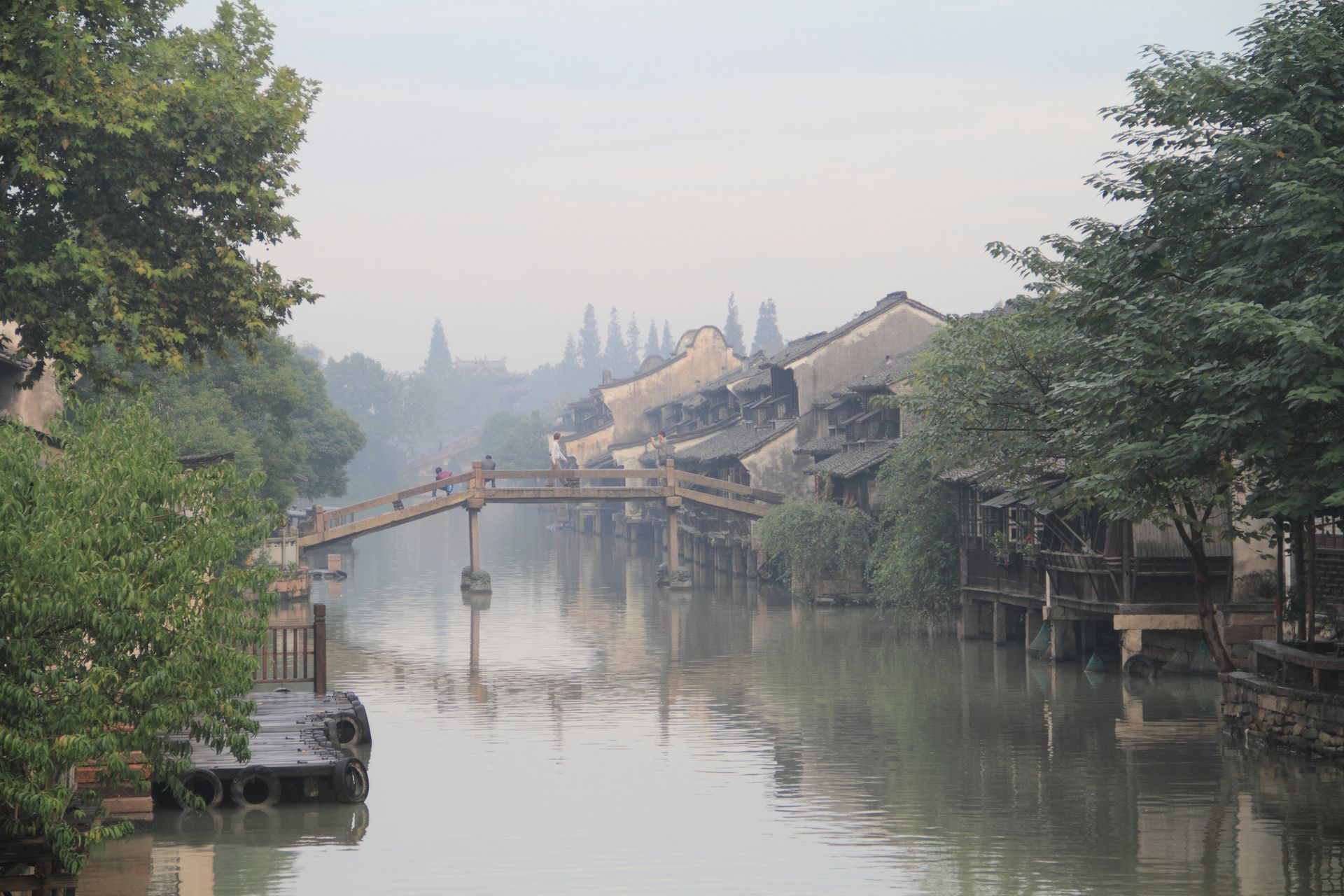China has many historic water villages, but Wuzhen is poised to be the first to emulate Venice by embracing international contemporary art in a big way. The inaugural Wuzhen International Contemporary Art Exhibition, which is due to run for three months from 27 March, will feature works by 40 leading artists, including Damien Hirst, Ai Weiwei, Song Dong, Liu Jianhua, Maya Lin, Zhang Dali, Araki Nobuyoshi, Marina Abramovic, Xu Bing and Bill Viola. “We wanted to start with something very big,” says Cao Yangdong, the assistant to the exhibition’s chairman. The show, which will take place in a former silk factory and in public spaces, could be held every two or three years, Cao says.
Wuzhen. China has many historic water villages, but Wuzhen is poised to be the first to emulate Venice by embracing international contemporary art in a big way. The inaugural Wuzhen International Contemporary Art Exhibition, which is due to run for three months from 27 March, will feature works by 40 leading artists, including Damien Hirst, Ai Weiwei, Song Dong, Liu Jianhua, Maya Lin, Zhang Dali, Araki Nobuyoshi, Marina Abramovic, Xu Bing and Bill Viola. “We wanted to start with something very big,” says Cao Yangdong, the assistant to the exhibition’s chairman. The show, which will take place in a former silk factory and in public spaces, could be held every two or three years, Cao says.
The participating artists are split equally between Chinese and international figures. The roster includes its share of conceptual provocateurs, most notably Ai, whose work is rarely included in state-backed group shows in China.

Feng Boyi is the lead curator, working with Wang Xiaosong and Liu Gang. They have a high-powered curatorial advisory committee comprising Alexandra Munroe, Uli Sigg, Hou Hanru, Wu Hong, Leng Lin and Philip Tinari, which has helped to attract leading international artists. “[The artists] are interested in coming to China,” Cao says. “They don’t know much about China besides Beijing and Shanghai, so they find it interesting to come to a village that attracts eight million tourists a year.”
Wuzhen, in Zhejiang province, is around an hour’s drive from Shanghai or Hangzhou. In 2013, it launched a theatre festival, and in November 2015, it opened a museum commemorating the late artist, writer and native son Mu Xin. “The big shows in China are all in Beijing, Shanghai or Guangzhou, and never in the small towns,” Cao says. “In Europe, a lot of major events happen in smaller cities.”

